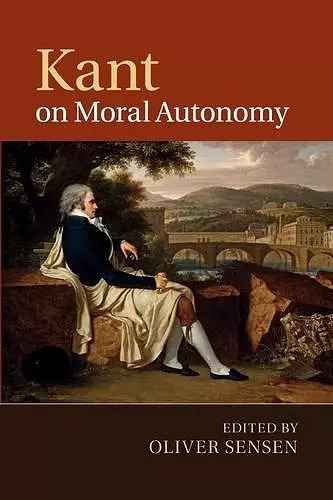Kant on Moral Autonomy
Format:Paperback
Publisher:Cambridge University Press
Published:5th Feb '15
Currently unavailable, and unfortunately no date known when it will be back

This book explores the central importance Kant's concept of autonomy for contemporary moral thought and modern philosophy.
This book explores Kant's concept of autonomy - of central importance for contemporary philosophy and moral thought and often said to be the justification for human rights. Of interest to human rights theorists, graduate and advanced undergraduate students of Kantian studies, moral philosophy, legal and political philosophy, the history of philosophy and psychology.The concept of autonomy is one of Kant's central legacies for contemporary moral thought. We often invoke autonomy as both a moral ideal and a human right, especially a right to determine oneself independently of foreign determinants; indeed, to violate a person's autonomy is considered to be a serious moral offence. Yet while contemporary philosophy claims Kant as the originator of its notion of autonomy, Kant's own conception of the term seems to differ in important respects from our present-day interpretation. Kant on Moral Autonomy brings together a distinguished group of scholars who explore the following questions: what is Kant's conception of autonomy? What is its history and its influence on contemporary conceptions? And what is its moral significance? Their essays will be of interest both to scholars and students working on Kantian moral philosophy and to anyone interested in the subject of autonomy.
'This rich collection of essays, many inspired by or referencing the work of Onora O'Neill, offers various perspectives on autonomy in Kant with some effort to draw relations to other issues in moral theory.' Frederick Rauscher, Journal of the History of Philosophy
ISBN: 9781107492035
Dimensions: 228mm x 152mm x 17mm
Weight: 460g
314 pages